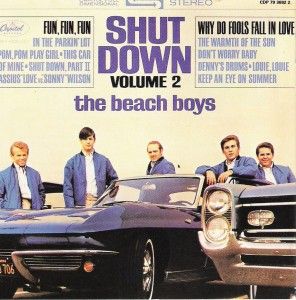Federal govt. shutdown would ripple through CA
by Adam O'Neal | September 27, 2013 9:28 am
Confusion, as usual, reigns in the U.S. Capitol. Now that Sen. Ted Cruz has finished his epic speech (or filibuster, depending whom you ask), the question of whether or not House Speaker John Boehner, R-Ohio, will be able to convince the House Republican Conference to vote for a clean continuing resolution has taken center stage. (A “clean CR” — continuing resolution — would fund the government for several more months without any strings, like defunding Obamacare, attached.)
 [1]Absent the passage of some type of CR, clean or otherwise, the federal government will shut down. A shutdown — particularly one that would only last a few days — seems more likely each day, as leaders in both chambers seem unlikely to reach an agreement by the Sept. 30 deadline.
[1]Absent the passage of some type of CR, clean or otherwise, the federal government will shut down. A shutdown — particularly one that would only last a few days — seems more likely each day, as leaders in both chambers seem unlikely to reach an agreement by the Sept. 30 deadline.
And according to a new poll[2] from the Global Strategy Group, a Democratic public affairs firm, 74 percent of Americans believe that a government shutdown would worsen their personal financial situation. Of course, that data is purely based on what the public perceives about a shutdown — not what would actually happen.
But what exactly would happen if the Senate and House reach an insurmountable impasse and the federal government closes?
A shutdown would no doubt have effects throughout America — from DC all the way to California. But, truth be told, no one knows exactly how a government shutdown would play out.
Not affected
First, consider who and what won’t be affected. The Office of Management and Budget recently issued an order[3] for all federal agencies to determine which employees are essential. Essential employees will continue to work through a shutdown, though they won’t be paid until after the shutdown ends. Nonessential employees are furloughed for the entirety of the shutdown. Typically, about half of federal employees are deemed nonessential. As of 2011[4], there were over 2.5 million federal employees.
The Washington Post wrote a partial summary[5] of which types of employees will stay on the job:
Any employee or office that “provides for the national security, including the conduct of foreign relations essential to the national security or the safety of life and property.” That means the U.S. military will keep operating, for one.
Any employee who conducts “essential activities to the extent that they protect life and property.” So, for example: Air traffic control stays open. So do all emergency medical care, food-safety inspections, border patrol, federal prisons, law enforcement, emergency and disaster assistance, overseeing the banking system, operating the power grid, and guarding federal property.
Agencies have to keep sending out benefits and operating programs that are written into permanent law or get multi-year funding. That means sending out Social Security checks and providing certain types of veterans’ benefits.
All agencies with independent sources of funding remain open, including the U.S. Postal Service and the Federal Reserve.
Members of Congress can also stick around, since their pay is written into permanent law. However, many congressional staffers may not get paid without specific appropriations. Many White House employees may also have to go without pay.
Shutdown
So which agencies shut down?
As with employees, it’s virtually impossible to say which agencies — or which parts of those agencies — will close. In 2011, the OMB published dozens of memos[6] that explained a shutdown in greater detail. Another report[7] released earlier this summer made some predictions about how a 2013 shutdown would work compared to the 1995-1996 one.
Most law enforcement functions would remain intact, but some changes would occur. Californians purchasing firearms may expect delays, as the Bureau of Alcohol, Tobacco and Firearms stopped processing applications for weapons (and alcohol licenses). And the Border Patrol previously put a hold on hiring new agents, though patrolling activity didn’t stop.
Yosemite National Park — and some of the 25 other national parks in California — may close. And the Environmental Protection Agency also closed its doors almost entirely, though the California Air Resources Board and local Air Quality Management Districts would remain open to continue regulating Californian’s emissions.
And tourism — a huge contribution to California’s economy — would take a hit. Hundreds of thousands of visas weren’t processed during the last shutdown, which lasted 17 days. It’s likely a similar number would be delayed.
Californians on unemployment could be affected, since part of the funding unemployment benefits comes from the federal government. Those changes would take longer to kick in, however. The IRS might also suspend work on processing tax refunds for some returns. Central Valley farmers would see farm loans and farm payments cease.
And the list goes on. Those opposed to big government may look kindly on the impending shutdown. Those receiving benefits will be less happy.
- [Image]: http://calwatchdog.com/wp-content/uploads/2013/09/Shutdown-beach-boys.jpg
- a new poll: http://pgpf.org/press/2013/09/Peter-G-Peterson-Foundation-Poll-Shows-Americans-Believe-Government-Shutdown-Debt
- recently issued an order: http://www.washingtonpost.com/blogs/federal-eye/wp/2013/09/18/omb-to-agencies-start-making-shutdown-plans/
- As of 2011: http://www2.census.gov/govs/apes/11fedfun.pdf
- a partial summary: http://www.washingtonpost.com/blogs/wonkblog/wp/2013/09/24/everything-you-need-to-know-about-a-government-shutdown/
- dozens of memos: http://www.whitehouse.gov/omb/contingency-plans'
- report: http://www.fas.org/sgp/crs/misc/RL34680.pdf
Source URL: https://calwatchdog.com/2013/09/27/federal-govt-shutdown-would-ripple-through-ca/